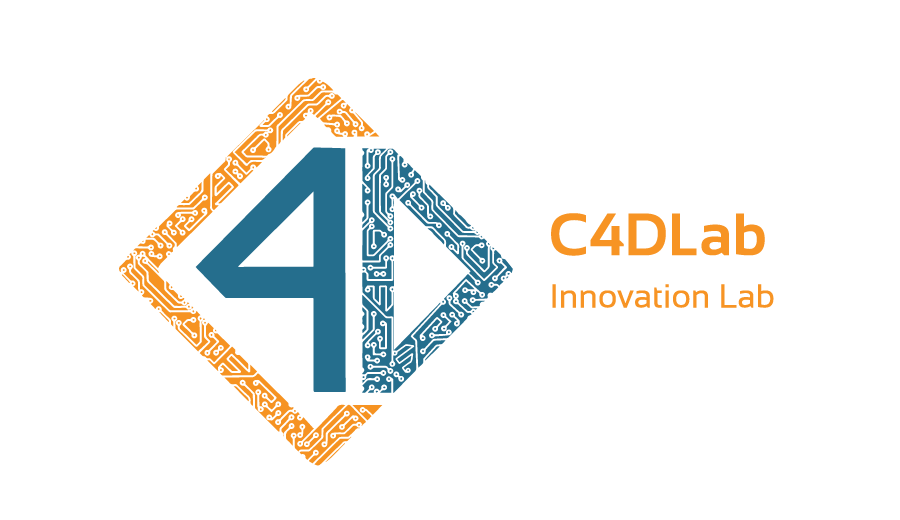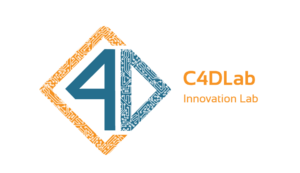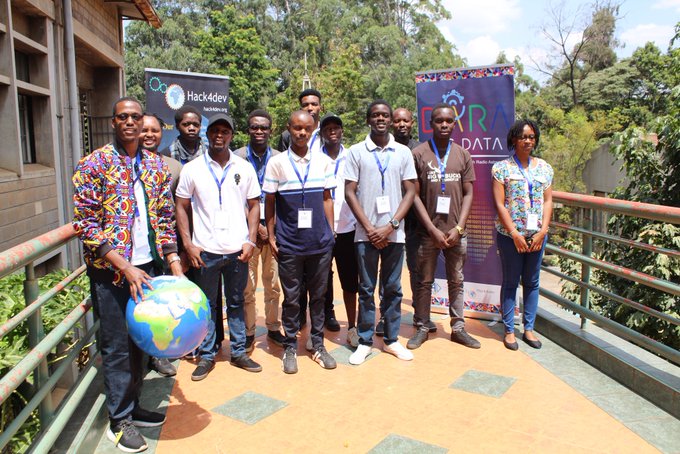Friday, March 7, 2024 —The hum of focused concentration filled C4DLab last week as the Nairobi Data Science Regional Hackathon 2025, a key event in Hack4Dev’s global series, reached its culmination. This significant event, generously sponsored by DARA Big Data, alongside support from Ilifu cloud, brought together brilliant minds to tackle a real-world space research challenge. From March 4 to 6th, 14 participants, including four University of Nairobi students, dove deep into the complexities of machine learning for CubeSats.
Speaking at the event, Cephas Kingóri, the team leader, this was not just another tech event; it was a crucible of innovation, where participants worked to build efficient pipelines that prioritize data transmission, a vital need for missions operating under stringent resource limitations. Essentially, it was about optimizing the CubeSat image classifier model against a set baseline level.
The challenge, a core component of Hack4Dev’s 14-region hackathon initiative, presented a formidable, yet exciting, opportunity. Participants wrestled with the intricacies of developing machine learning models capable of achieving high accuracy of satellite images while minimizing resource consumption.
Ilifu cloud, providing essential computational resources, and the sponsorship of DARA Big Data, were key to the event’s success. This multi-regional effort, running from February to April, offered a unique chance for Nairobi’s participants to not only compete locally but also benchmark their skills against teams across the globe, and of course, compete for the best team prize per regional hackathon.
The journey began with a half-day of insightful talks, laying the groundwork for the intensive five-day hackathon. Participants, armed with pre-released materials and notebooks, were expected to demonstrate proficiency in Python programming and command-line usage. The atmosphere was charged with collaborative energy, as teams worked tirelessly, pushing the boundaries of their knowledge. The Hack4Dev initiative, with the strong backing of DARA Big Data, aims to foster data science talent and drive impactful solutions for real-world problems.
The focus on CubeSats highlights the growing importance of data science in advancing space research. Beyond the regional prizes, the stakes were high, with teams vying for the “Best Overall Pipeline” award. A committee of experienced ML academics will evaluate the pipelines based on clarity, completeness, and innovation.
Although the DARA Big Data sponsored Nairobi Data Science Regional Hackathon 2025 closed last Friday, the impact of this event will resonate far beyond the walls of C4DLab. The solutions developed then have the potential to contribute significantly to the advancement of CubeSat technology, enabling more efficient and cost-effective space missions.
The participants, having honed their skills and forged valuable connections, are now better equipped to tackle the challenges of the data-driven world. This hackathon is a testament to the power of collaboration, innovation, and the dedication of individuals passionate about using data science for the betterment of society, and of course, to the potential of winning valuable prizes thanks to the support of DARA Big Data.
About Hack4dev
Hack4Dev, born from a collaboration between IDIA, DARA Big Data, and the IAU’s OAD, is a program designed to rapidly build data analytics skills and drive developmental impact through global micro-programs like hackathons. By empowering institutions to organize their own events with provided resources and training, Hack4Dev fosters a network of skilled individuals, leveraging data to address real-world challenges. The program employs a structured framework, from alumni engagement to regional hackathons and feedback analysis, ensuring continuous improvement and broad dissemination of results to academics, policymakers, and the public.
About DARA BIG DATA
DARA Big Data is a pivotal initiative funded by the UK’s Newton Fund, with additional support from the South African Department of Science and Innovation. It collaborates closely with the DARA Project, led by Prof Melvin Hoare at the University of Leeds, which was established in 2015 to train African students in radio astronomy. Recognizing the complementary need for data science skills, DARA Big Data emerged to focus on developing these capabilities among African students. The project aims to translate data-intensive science skills from radio astronomy to other areas, such as agriculture and healthcare, enhancing Africa’s technological capacity and addressing local development challenges. Through various training programs and hackathons, DARA Big Data equips students with high-level data science skills, fostering innovation and economic growth across the continent.


